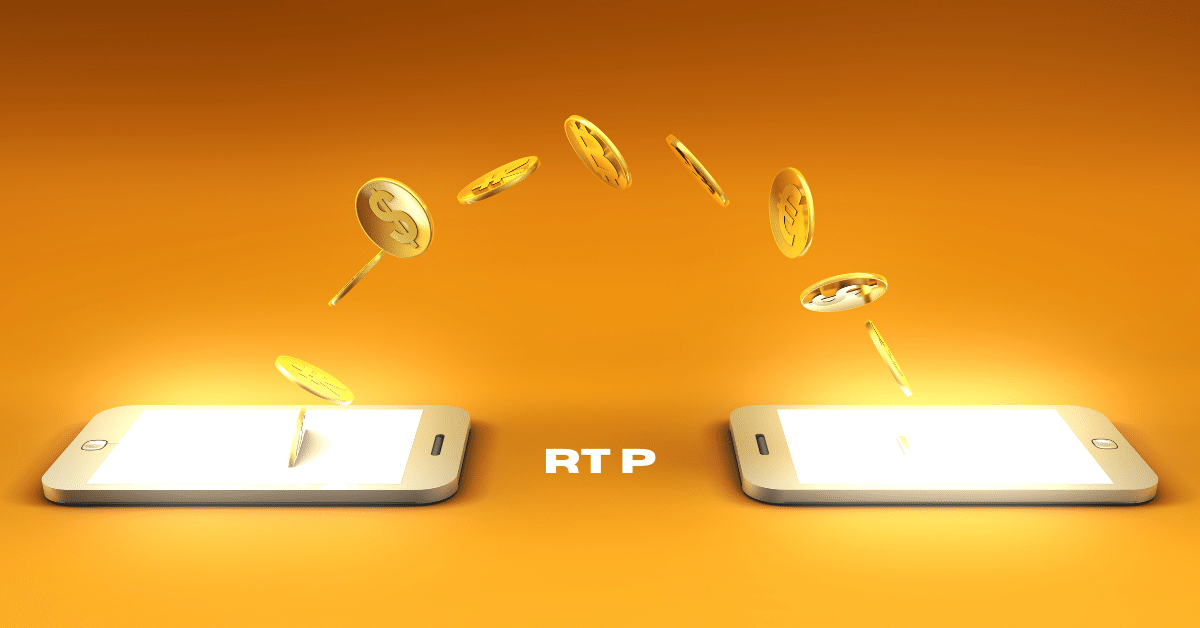In the realm of banking, RTP stands for Real-Time Payments, an advanced system changing the method monetary deals occur. RTP stands for a settlement approach that enables instant and unalterable transactions, running 24/7, 365 days a year. This innovative payment service serves as a stimulant, reshaping the conventional landscape of economic deals and providing unequaled benefits to organizations and customers alike.
 Advancement of Real-Time Payments
Advancement of Real-Time Payments
Real-Time Payments have actually advanced as a response to the enhancing need for immediacy in economic purchases. Initially introduced to deal with the developing needs of companies and customers seeking faster and much more effective settlement options, RTP has significantly structured the transaction procedure.
 The Mechanics Behind RTP
The Mechanics Behind RTP
Instantaneous Transactions
RTP makes sure instant deals, facilitating funds transfer immediately. Unlike standard payment methods that may take a number of days to procedure, RTP enables swift and immediate transfers, encouraging services to boost functional efficiency and customer satisfaction.
 Irreversibility
Irreversibility
One of the defining features of RTP is its finality. As soon as a repayment is initiated, it can not be turned around, offering a safe setting for purchases and reducing the danger of fraudulence or disagreements.
 24/7 Accessibility
24/7 Accessibility
Unlike conventional financial systems that run within particular hours, RTP functions round the clock, daily of the year.This availability makes sure companies and people can carry out purchases at any time, cultivating a seamless monetary ecological community.
 Benefits of RTP in Banking
Benefits of RTP in Banking
Improved Customer Experience
RTP changes the consumer experience by supplying instant accessibility to funds and allowing swift settlements.
This rapid transfer capacity adds to boosted consumer fulfillment, using benefit and performance.
 Improved Business Operations
Improved Business Operations
For organizations, RTP serves as a game-changer, enhancing capital monitoring and speeding up repayment procedures.It assists in quicker negotiations, lowering the reliance on hand-operated treatment and enhancing functional efficiency.
 Price Efficiency
Price Efficiency
The structured nature of RTP equates right into expense effectiveness for both services and consumers. Reduced handling times and administrative expenses add to lower transaction prices, making RTP an economically practical option.
 Applying RTP in Banking Systems
Applying RTP in Banking Systems
The integration of RTP right into banking systems involves leveraging innovative technology and partnership amongst banks. Seamless assimilation requires adherence to robust security procedures to make sure the safety and honesty of purchases.
 Future Prospects of RTP
Future Prospects of RTP
Advancement and Expansion
As innovation remains to advance, the future of RTP holds immense potential for innovation and development. The continuous advancement of payment services and collaboration among industry gamers will even more enhance the abilities and accessibility of RTP.
 International Adoption
International Adoption
The worldwide fostering of Real-Time Payments is on the rise, with numerous nations applying systems tailored to their details needs. This prevalent approval signifies the expanding significance and dependability of RTP as a recommended payment technique.
 Finally,
Finally,
Real-Time Payments (RTP) symbolize a transformative leap in the financial industry, providing instant, secure, and effective deals. As the economic landscape continues to develop, the prevalent fostering and advancements in RTP are positioned to redefine the future of settlements.
FAQ: What Does RTP Mean in Banking?
Q1: What does RTP stand for in financial?
A1: RTP stands for “Real-Time Payments” in banking. It refers to a system that allows immediate and smooth digital deals in between banks.
Q2: How does RTP differ from typical payment techniques?
A2: Unlike standard settlement approaches that may take hours or days to process, RTP permits instant fund transfers. This real-time capability enhances the rate and effectiveness of economic deals.
Q3: What types of purchases are supported by RTP in financial?
A3: RTP supports a large range of purchases, including person-to-person transfers, bill settlements, business-to-business deals, and various other repayments that require instant settlement.
Q4: What are the vital benefits of using RTP in financial?
A4: The main advantages of RTP consist of quicker and easier purchases, boosted cash flow for organizations, decreased reliance on physical cash, and boosted total economic effectiveness.
Q5: How is RTP different from traditional wire transfers?
A5: While conventional cable transfers can take hours and even days to procedure, RTP gives instant transfer of funds, making it a much faster and more reliable alternative for individuals.
Q6: Are there any type of safety concerns with RTP in financial?
A6: RTP systems are created with durable safety and security steps to shield versus fraud and unauthorized accessibility. Financial institutions execute security and verification procedures to ensure the safety and security of purchases.
Q7: Can individuals and services both make use of RTP in financial?
A7: Yes, both people and organizations can take advantage of RTP. It caters to a wide range of customers, assisting in quick and safe and secure deals for numerous purposes.
Q8: Is there a restriction to the amount that can be moved with RTP?
A8: The restrictions for RTP transactions can differ by financial institution and may rely on variables such as account type, individual account, and safety and security procedures. Customers are advised to check with their corresponding banks for specific details.
Q9: How can I access RTP solutions through my financial institution?
A9: To utilize RTP solutions, contact your financial institution to ensure they provide real-time repayment choices. A lot of financial institutions provide RTP capability through electronic banking systems, mobile applications, or other marked networks.
Q10: Are there any kind of fees connected with RTP purchases in banking?
A10: Fees for RTP purchases differ by bank and may depend upon variables such as deal kind, amount, and account kind. Users ought to examine their bank’s cost schedule or get in touch with customer support for comprehensive information.
